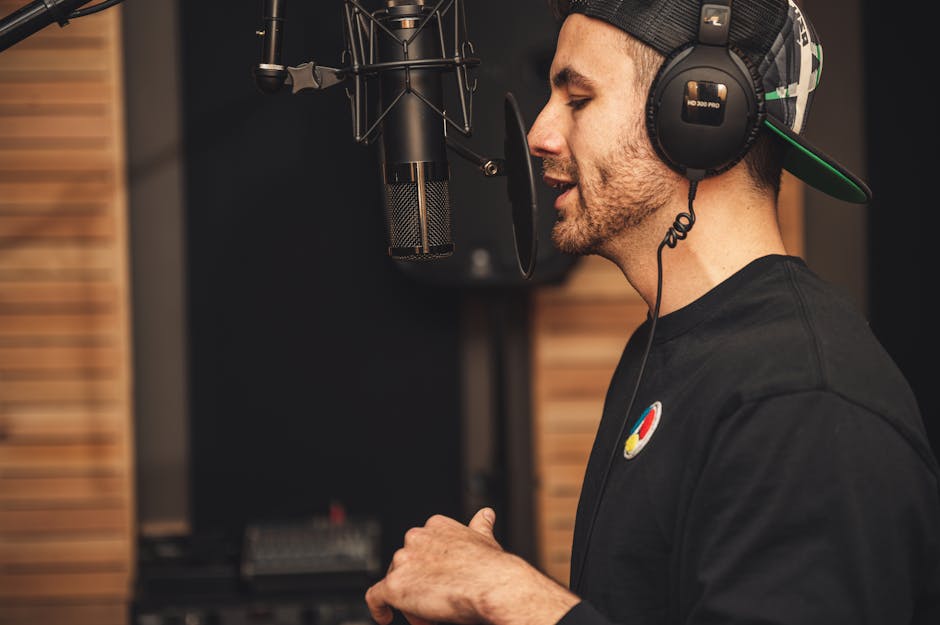Table of Contents
Alright, so you wanna talk about getting into entertainment law, huh?
Every damn year, it’s the same thing. Some bright-eyed kid from god knows where, usually clutching a degree that probably means sweet nothing in the real world, asks me, “Which law school’s gonna make me the next big shot in Hollywood?” Or music. Or gaming. Whatever the flavour of the month is. They think it’s all glitz and red carpets. Lemme tell ya, it ain’t. It’s contracts. It’s intellectual property. It’s arguing over fractions of a percent till your eyes bleed.
Look, there’s no secret handshake, no magic school. But some places, they just… they got the right crowd, the right connections, the faculty who’ve actually done a few deals that didn’t involve a lemonade stand. It’s not about the flash, it’s about the grit. The sheer grind of it. You gotta want to do this, truly, otherwise you’ll burn out faster than a cheap firework.
You hear a lot of noise about the West Coast, right? And yeah, there’s some truth to it.
USC Gould School of Law
You can’t swing a dead cat in Hollywood without hitting someone who went to USC. They’re right there in the thick of it. The campus is… well, it’s Los Angeles. That proximity alone is worth a fair bit. You got students working internships at places like Warner Bros. Entertainment, at Netflix, all over town. They’ve got clinics, externships, a whole media and entertainment law society. It’s not just theory there. They try to get you into the actual machine. You need that. Book smarts are one thing, but knowing how to navigate a studio lot, or dealing with the kind of ego that walks into an agent’s office? That’s something else entirely. The professors there, some of them have done time at big firms like Ziffren Brittenham LLP, the folks who represent pretty much everyone you’ve ever heard of. Or Gang, Tyre, Ramer & Brown, Inc., which is another powerhouse. They know the names. They know the game. It’s not a cozy place. It’s competitive. You better believe that. If you’re not willing to fight for a spot, for a good internship, then don’t bother.
What kind of person thrives there?
Someone with a bit of a thick skin, I reckon. Someone who understands that networking isn’t just shaking hands at mixers, it’s about making a genuine connection, figuring out what makes another person tick. It’s a bit cutthroat, to be fair. People might tell you it’s all collaborative. Nonsense. It’s about being better than the next guy in line. And there’s always a next guy. Always.
UCLA School of Law
Then you got UCLA, just down the road. Same city, different vibe. Still right there in the middle of all the action. They’ve got a killer entertainment, media, and intellectual property program. They really dig into the IP side, which, let me tell you, is where the money is. Or at least where the lawsuits are. Think about it: music rights, film rights, video game patents. Who owns what? Who can use what? That’s the real fight. Universal Music Group ain’t just letting anyone use their catalog, are they? And these lawyers, they’re the ones making sure of it. You’ll find graduates from UCLA working at places like Creative Artists Agency (CAA) or William Morris Endeavor (WME), the big talent agencies. They’re the gatekeepers, the dealmakers. They handle the talent, but it’s the lawyers who paper the deals. Sometimes they’re trying to figure out if some obscure song from the 70s got cleared properly for a new streaming show. Gets messy.
The faculty here, they often come from long stints at major corporate law firms that have entertainment divisions, like Latham & Watkins LLP or O’Melveny & Myers LLP. They’ve seen it all, the good, the bad, and the truly ugly.
Is it all just Hollywood, then?
Nah. Not at all. People ask that all the time. “Is it just about movies?” For crying out loud, no. You think Live Nation Entertainment doesn’t need lawyers? Or when someone’s trying to launch a new video game studio, they just wing it? Every single piece of content, every performance, every piece of software, every damn T-shirt with a band logo on it, it’s got a lawyer somewhere behind it. Someone’s gotta draw up those merchandising agreements. Someone’s gotta fight over who gets paid what. It’s a vast, sprawling thing, the entertainment business. You could spend your whole career dealing just with music publishing. Or just sports contracts. Or just digital rights for VR experiences.
New York University School of Law (NYU Law)
Don’t forget the East Coast. New York City, it’s not just finance, you know. It’s a huge media hub. Publishing, music, theater, broadcast television. NYU has always had a strong name in this. Their IP and entertainment law courses are top-notch. They’ve got a long history of placing people at firms that handle massive media M&A deals, the kind of stuff that shapes whole industries. Think about when one streaming giant buys another, or a record label merges with a tech company. That’s not just a bunch of suits shaking hands; that’s armies of lawyers from places like Paul, Weiss, Rifkind, Wharton & Garrison LLP or Greenberg Traurig LLP hammering out every last detail. The kind of contracts that fill entire rooms.
What’s the hardest part about getting into this field?
Funny, isn’t it? Everyone thinks it’s getting into law school. That’s just the start. The hardest part, truly, is standing out. Because every kid coming out of these schools, they’re smart. They’re driven. They all want that big name firm. You gotta show something extra. What have you done? Did you work a crummy job at a local radio station? Did you help a friend put together a crappy independent film? Those experiences, they actually matter more than a perfect GPA sometimes. They show you get it. You understand the creative side, even a little. That you’re not just a bookworm.
Columbia Law School
Another New York heavyweight. Columbia, you expect excellence, right? And they deliver. Their focus on IP and business law makes them a natural fit for entertainment. They’re churning out grads who go straight into major record labels like Sony Music Entertainment or big media conglomerates. It’s not just about defending some artist’s copyright; it’s about understanding the entire business model of how content is created, distributed, and monetized globally. These are the folks who draft those incredibly complex cross-border licensing deals.
They have a Media and Entertainment Law Society, of course, but it’s the depth of their commercial law courses that really sets them apart for this field. You need to know how corporations work, how money moves, how deals are structured. Because at the end of the day, entertainment is a business. A big, messy, profitable business.
Do you need to be a lawyer to work in entertainment?
Absolutely not. What a ridiculous question. Plenty of people in the industry have no legal background whatsoever. They’re creatives, they’re managers, they’re executives. But if you are a lawyer, you have a distinct advantage. You understand the language of the deals. You can protect your clients. Or yourself. It’s a powerful tool, a law degree. It opens doors. It doesn’t guarantee success, mind you. Nothing does.
Georgetown University Law Center
You might not immediately think D.C. for entertainment law, but Georgetown is a major player, especially when it comes to policy and international intellectual property. A lot of the foundational rules for how content is protected globally, how royalties flow across borders, how new technologies get regulated – that stuff gets hashed out in washington. So, if you’re interested in the bigger picture, the legal framework, the legislative side of entertainment, Georgetown’s a solid choice. You’re not necessarily going to be repping the latest pop star, but you might be advising a trade association or working on a landmark case that changes how artists get paid for decades. That’s a different kind of power. And believe me, it’s just as important, if not more so, than the day-to-day squabbles.
Is it all just about big cities?
No. Some smaller programs, even schools in places you wouldn’t expect, they do good work. It depends on the specific faculty, the clinics they offer. But let’s be honest, the bulk of the action, the major firms, the big studios, they’re in L.A. and New York. That’s just the reality of it. You can learn the law anywhere, but the access, that’s different.
Vanderbilt University Law School
Okay, hear me out. Nashville. Music City. Vanderbilt has a seriously strong intellectual property program. And guess what? The music industry is complex as hell. It’s not just about writing a song anymore. It’s streaming rights, sync licenses, publishing, master recordings, NFTs now for crying out loud. It’s a mess of interlocking agreements. Vanderbilt’s got clinics that deal directly with artists, songwriters, indie labels. They’re in the thick of the music business, which is a beast all its own. So if your passion is music, not just any old entertainment, this is a place that gets it. You’ll find graduates working at labels or publishers, or even starting their own boutique firms focusing on music law. Sometimes you see them at places like Warner Chappell Music or similar publishing powerhouses. It’s a different pace than L.A., maybe, but the legal work is just as demanding.
What if I don’t go to one of these “top” schools? Am I screwed?
Oh, for heaven’s sake. No. That’s a load of rubbish. Plenty of good lawyers come from all sorts of places. What matters is what you do with your law degree. You want to practice entertainment law? You intern every summer. You take every relevant course. You join every club. You meet people. You send cold emails. You hustle. You show up. That’s the real secret. Some of the most tenacious, sharpest lawyers I know came from places you’ve never heard of, because they wanted it more. They weren’t handed anything. They clawed their way in.
It’s about demonstrating interest, a genuine, burning interest. Not just a passing fancy because it sounds glamorous. Because it’s not glamorous. It’s hard. It’s long hours. It’s dealing with fragile egos and huge sums of money. It’s reading fine print until you see stars.
Look, you could go to any decent law school, really. If they offer even a few IP or contract courses, you can build a foundation. But the schools I mentioned, they give you a running start. They have the alumni networks already in place. The faculty often includes people who are still active in the field. They might bring in guest speakers from The Walt Disney Company or the big agencies. That’s the real advantage. Not some fancy name on a diploma, but the people you meet and the practical knowledge you pick up.
You gotta read. Everything. Trade publications. The Hollywood Reporter. Variety. Billboard. Know what’s happening in the industry. Not just the legal stuff, but the deals, the trends, the scandals. Because that’s what your clients are dealing with. That’s what you’ll be advising them on. The law never exists in a vacuum. Especially not this kind of law.
This ain’t for everyone. Some folks, they get in, they see the reality, and they bail. Go do corporate mergers or something equally soul-crushing but with clearer hours. But if you’re built for it, if you love the chaos, if you can handle the characters and the stakes, it’s a hell of a ride. Just don’t come crying to me when you’re still on your third draft of some arcane licensing agreement at three in the morning. I warned ya.












